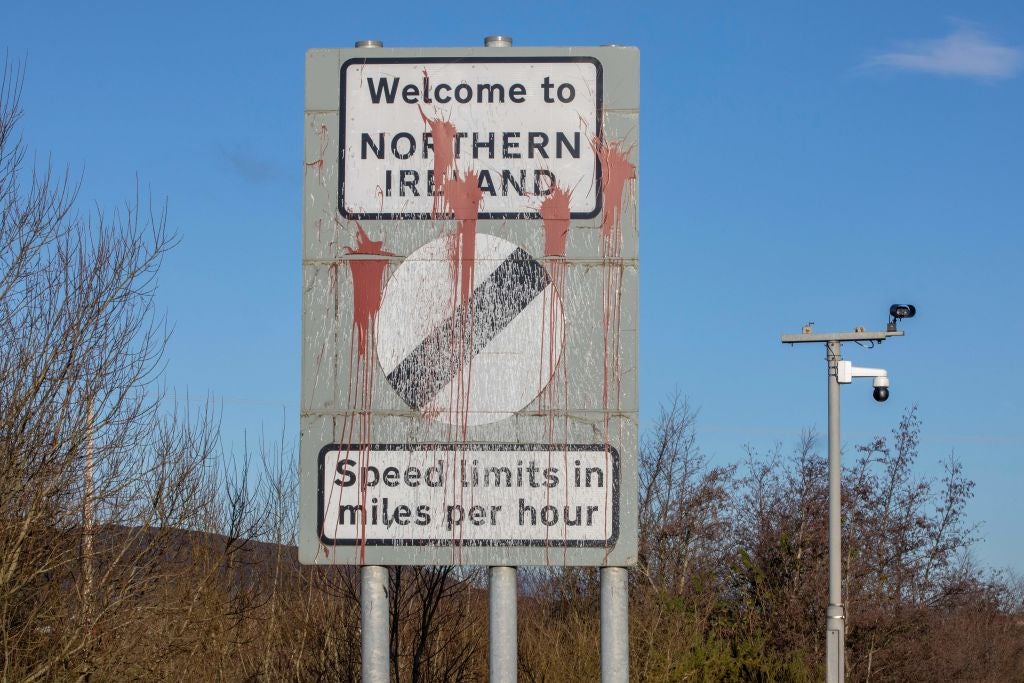Do Northern Ireland unionists need to be worried?
The twin challenges of Brexit and demography are shaking Northern Ireland’s position in the UK


Barely a month after coming into operation, the new “Irish Sea border” born out of Brexit has been suspended following alleged threats from loyalist paramilitaries. Protestant insecurities have been boosted by new barriers to trade with Britain, and by vociferous Sinn Féin calls for a poll on Irish unity.
Do these fears have a substantial basis? Yes, and no. Brexit may have a fundamental impact on the relationship between Northern Ireland and the UK. But the risk of Northern Ireland being voted out of the UK by referendum appears quite low – at least at the moment.
Since at least the 1960s, many unionists have anxiously watched the natural increase of the Catholic minority. Since Catholics had traditionally strongly supported Irish unity, which Protestants overwhelmingly opposed, this raised the long-term nightmare of Protestants being “out-bred” and absorbed by the Republic of Ireland.
For decades after the creation of Northern Ireland, Catholics made up about 35 per cent of the population, their above-average fertility rate offset by a high emigration rate. But from 1971 onwards the proportion of Catholics began to increase steadily, reaching 41 per cent in 2011, with the Protestant share dropping to 42 per cent.
Since “religion” matters in Northern Ireland as a pointer less to theological principle than to community background, statisticians try to measure the latter by reallocating the remaining 17 per cent according to childhood religion. This results in a Catholic share of 45 per cent by “community background” for 2011, with Protestants at 48 per cent and 7 per cent still falling outside this duopoly.
Incremental growth in the Catholic share of the population is set to continue. The 2011 census showed Catholics outnumbering Protestants in all age cohorts below 50. Crude projections from this data suggest that Catholics (by background) will reach at least parity with Protestants by 2021, with each at 46 per cent.
The steady demographic advance of Catholics will not inevitably lead to majority support for Irish unity, however. Since the earliest attitude surveys, there has been a marked asymmetry between Catholic and Protestant constitutional preferences. The findings of the 2019 Northern Ireland Life and Times survey are typical: 94 per cent of Protestants supported the Union, but only 54 per cent of Catholics supported Irish unity.
Taking account of Catholic attitudes, support for the Union appears sufficiently robust to counterbalance comfortably any foreseeable consequences of demographic change. While commitment to the Union among Protestants is intense and widely shared, Catholic unionism is pragmatic and brittle. A big majority of Catholics and others found Brexit particularly unpalatable, and voted strongly against it in 2016. Brexit disrupted traditional constitutional preferences: several polls in 2020-21 showed support for the Union only slightly ahead of support for Irish unity.
Since Brexit implied a profound reinforcement of the UK-EU border (and therefore of the North-South Irish border), it posed obvious dangers for the Good Friday Agreement. To forestall this, the Northern Ireland protocol agreed by UK and EU negotiators in effect placed the inevitable new trade border in the Irish Sea.
For unionists, this internal economic partitioning of the UK was deeply distressing, as it appeared to reorientate Northern Ireland from London towards Dublin – “a disaster for unionism”, in the words of commentator Ben Lowry at the News Letter, or “the biggest strategic mistake since partition”, as former Ulster Unionist leader Sir Reg Empey put it.
Is this hyperbole justified? From an economic perspective, perhaps not: Northern Ireland’s special status, with a foot in both the EU and the UK camps, may turn out to be a long-term blessing – even if economic ties increasingly extend in the direction of the Republic.
Politically, the protocol did not create a new frontier in the Irish Sea; it superimposed a new layer on the constitutional border that had always separated the island of Ireland from Great Britain. The Union of 1801 left Ireland with advanced administrative autonomy. When the island was partitioned in 1921, Northern Ireland continued as a constitutionally separate entity, and even after the introduction of “direct rule” in 1972 it was never integrated within the UK; the old “Irish Sea border” remained. The protocol’s “consent” provision – which prescribes a periodic vote by members of the Northern Ireland Assembly – offers a claw-back mechanism by which the substance of the new Irish Sea border layer may be subverted.
Northern Ireland’s place in the Union may be threatened by demography and Brexit; but it retains important resources –including substantial southern support for the status quo. It is too early to write off the capacity of unionists to mobilise public opinion in the North and (if they were to appreciate its potential) pro-partition sentiment in the South. Whether they can steer an effective political course against broader geopolitical forces (the evolving Brussels-Dublin-London relationship, where state interests trump concern for Northern Ireland) is another matter.
John Coakley is a professor in the School of History, Anthropology, Philosophy and Politics, Queen’s University Belfast, and a fellow of the Geary Institute, University College Dublin
Join our commenting forum
Join thought-provoking conversations, follow other Independent readers and see their replies
Comments



Bookmark popover
Removed from bookmarks